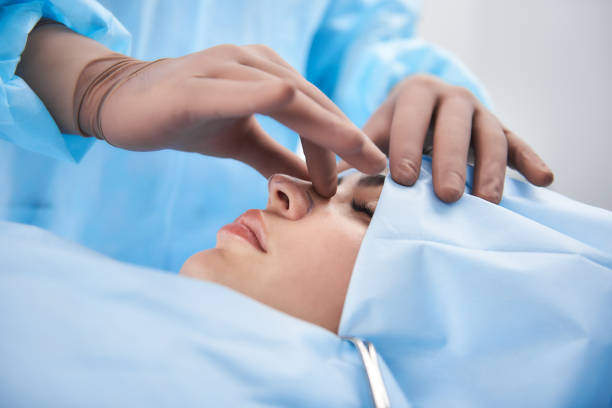Ideal Candidate Traits For Rhinoplasty Surgery Success
Understanding Rhinoplasty in Riyadh
Rhinoplasty is a popular cosmetic surgery aimed at reshaping the nose to enhance facial harmony and improve nasal function. For individuals considering this procedure, understanding Rhinoplasty in Riyadh involves more than just the aesthetics—it includes knowing whether they are suitable candidates for the surgery.
Characteristics of an Ideal Rhinoplasty Candidate
Choosing to undergo Rhinoplasty in Riyadh requires a person to have clear expectations and a stable mindset. An ideal candidate should be physically healthy, without chronic conditions that could complicate surgery or healing. Equally important is having a realistic outlook about the results and understanding that rhinoplasty aims to improve, not necessarily achieve perceived perfection.

Age and Physical Maturity
One of the key traits for rhinoplasty success is physical maturity. Candidates should be at least in their late teens, as the nose needs to be fully developed before surgery to avoid complications or the need for revisions. This ensures the structure can support the changes made during rhinoplasty and that the results will be stable over time.
Emotional and Psychological Stability
An important but often overlooked trait is emotional readiness. Ideal candidates are those who have a stable mental state and are seeking rhinoplasty for personal reasons rather than external pressures. Understanding the motivation behind the surgery ensures that the individual will be satisfied with the outcome and cope well with the recovery process.
Skin Type and Nasal Structure Considerations
Skin thickness and nasal cartilage strength play a crucial role in rhinoplasty results. Those with thicker skin may experience less definition after surgery, while thin skin may highlight imperfections. Evaluating your nasal structure is essential for surgeons to determine the appropriate technique for the best possible outcome.
Commitment to Post-Surgery Care
Successful rhinoplasty requires patients to follow post-operative care guidelines diligently. Ideal candidates show readiness to attend follow-ups, avoid strenuous activities, and maintain proper hygiene. This commitment greatly affects healing speed and the quality of final results.
Benefits of Identifying Ideal Candidate Traits
Knowing these traits not only enhances the chances of surgical success but also helps align expectations, reduce risks, and improve overall satisfaction with Rhinoplasty in Riyadh. Proper candidate evaluation allows surgeons to customize the approach to fit unique facial features and personal goals.
Common Misconceptions About Rhinoplasty Candidates
Many believe rhinoplasty is suitable for anyone unhappy with their nose, but surgical success depends on specific health, psychological, and anatomical factors. Understanding these helps avoid disappointment and ensures candidates have a smooth surgical journey with rewarding results.
How to Determine If You Are an Ideal Candidate
Consultation with a qualified specialist includes a thorough medical history review, physical examination, and discussion of desires and concerns. This process helps identify if you possess the ideal traits for rhinoplasty success, ensuring personalized care and optimal outcomes.
Rhinoplasty Expectations
Having clear, achievable goals is vital. An ideal candidate understands that rhinoplasty can improve aesthetics and function but does not guarantee perfection. This mindset fosters satisfaction and confidence in the entire process.
Preparing Mentally and Physically for Surgery
Candidates who prepare themselves by adopting a healthy lifestyle, quitting smoking, and managing stress are more likely to experience smooth surgery and recovery. Mental preparation also helps with realistic acceptance of temporary post-surgical changes.
FAQs
What age is best for rhinoplasty surgery?
The best age for rhinoplasty is usually after nasal growth is complete, typically late teens or older.
How important is skin type in rhinoplasty results?
Skin type affects how well the surgical changes show through; thicker skin may soften results, while thinner skin reveals more detail.
Can rhinoplasty improve breathing issues?
Yes, rhinoplasty can correct structural problems to improve nasal airflow and breathing function.
What should I discuss during a rhinoplasty consultation?
Discuss your goals, medical history, previous nasal injuries, and expectations to help the surgeon plan your personalized procedure.